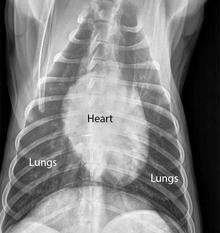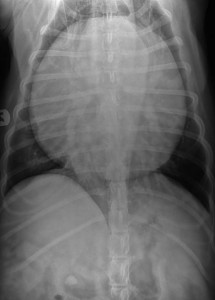DanBar Ranch
Heart failure is a leading cause of death among dogs. The most common inherited heart diseases in the dog include the congenital defects, Subvalvular aortic stenosis, pulmonic stenosis and patent ductus arteriosus (PDA). The most common adult onset inherited diseases include dilated cardiomyopathy and endocardiosis.
OFA statistics show the cairn terrier with a 100% pass rate for basic cardiac screening, however as of 2004 only 70 dogs have been screened. That is really shameful! Cairn breeders need to do better!
Health Testing: CARDIAC DISEASE
There are genetic (inherited from the parents) health challenges which face the Cairn terrier. Like other inherited diseases, it is within the hands of breeders whether a breed becomes clear of these diseases or continues to be at risk.
It is SO important for breeders to have breeding stock checked for any signs of heart disease, such as murmurs. As a breeder of Dobermans, a breed which has been allowed (by breeders) to become riddled with heart disease, I take the challenge seriously to do what I can in the time allotted me, to produce foundation quality dogs for pet homes or breeders, that are cleared for heart disease.
I thank you for your support. Only when a puppy buyer cares enough to support breeders who put the purchase price of the pup back into the breed by health testing, can a breed become healthier. These dogs are truly are best friends - to me, its the least we can do for these wonderful creatures.
Above: normal heart in a dog. Below: a diseased heart.





